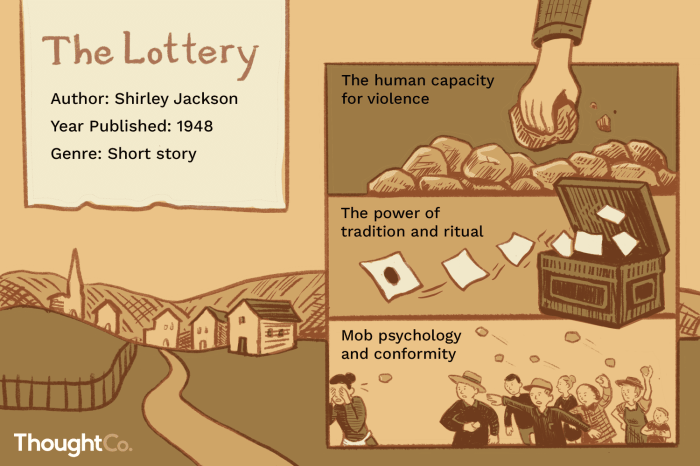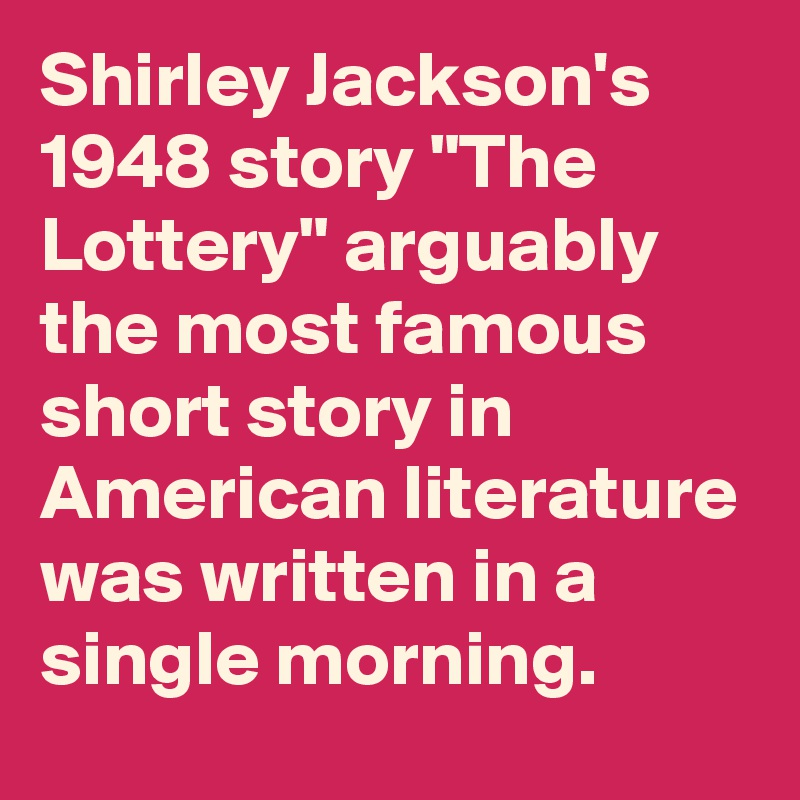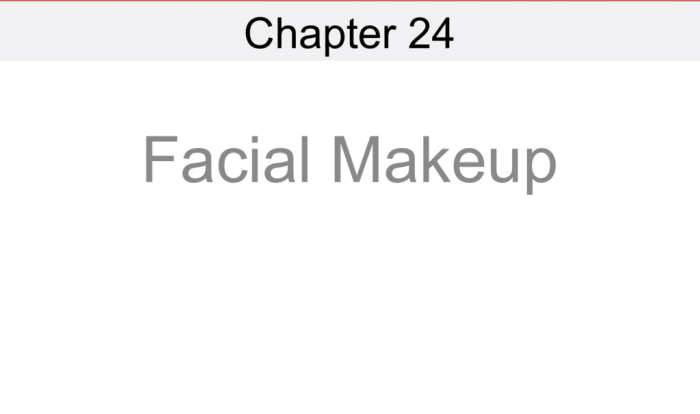The morning of june 28 1948 and the lottery – In the haunting tale “The Lottery,” Shirley Jackson presents a chilling exploration of conformity and tradition, set against the backdrop of a seemingly ordinary village on the morning of June 28, 1948. This timeless short story invites readers to confront the dark undercurrents of human nature and question the dangers of blindly adhering to societal norms.
Jackson’s masterful storytelling transports us to the heart of a small community where the annual lottery ritual unfolds with sinister precision. As the villagers gather, the atmosphere thickens with a sense of dread and anticipation, revealing the story’s profound social commentary and its enduring relevance to our contemporary world.
Historical Significance of June 28, 1948

June 28, 1948, marks a pivotal date in the history of the Middle East and the broader global landscape. It witnessed the birth of the State of Israel and the subsequent outbreak of the Arab-Israeli War.
The establishment of Israel was a culmination of decades of Zionist aspirations and international negotiations. Following the horrors of the Holocaust, the United Nations General Assembly adopted Resolution 181, which called for the partition of British-controlled Palestine into two states, one Jewish and one Arab.
On May 14, 1948, the British Mandate for Palestine ended, and the Jewish leaders declared the establishment of the State of Israel. This declaration was immediately followed by an invasion by the armies of Egypt, Jordan, Syria, Lebanon, and Iraq.
The ensuing Arab-Israeli War lasted for eight months and resulted in significant territorial changes. Israel expanded its borders beyond those proposed by the UN partition plan, while Jordan annexed the West Bank and Egypt occupied the Gaza Strip.
The events of June 28, 1948, had a profound impact on the region and beyond. They set the stage for decades of conflict between Israel and its Arab neighbors, and the Palestinian refugee crisis remains a major humanitarian issue to this day.
The Lottery: Overview and Context: The Morning Of June 28 1948 And The Lottery

Shirley Jackson’s short story “The Lottery” is a chilling tale of societal conformity and the dangers of blindly adhering to tradition. It was first published in 1948 and has since become a staple of American literature.
The story is set in a small, isolated village on a summer day. The villagers gather in the town square for their annual lottery, a ritual that has been passed down for generations.
Each family in the village draws a slip of paper from a black box. The family that draws the paper with a black dot on it is stoned to death by the other villagers.
The story’s protagonist, Tessie Hutchinson, initially believes that the lottery is a harmless tradition. However, as the drawing proceeds, she becomes increasingly horrified and tries to escape her fate.
“The Lottery” was written during a period of heightened social and political tensions in the United States. The Cold War and the McCarthy era created a climate of fear and suspicion, and Jackson’s story reflects these anxieties.
Detailed FAQs
What is the significance of the date June 28, 1948, in the story?
The date is not explicitly mentioned in the story and is not considered significant to its themes or plot.
What is the purpose of the lottery in the story?
The purpose of the lottery is to select a sacrificial victim, highlighting the dangers of blindly following tradition and the scapegoating of individuals.
How does the story reflect the dangers of conformity?
The story illustrates how conformity can lead to the suppression of individuality, the erosion of critical thinking, and the perpetuation of harmful traditions.



